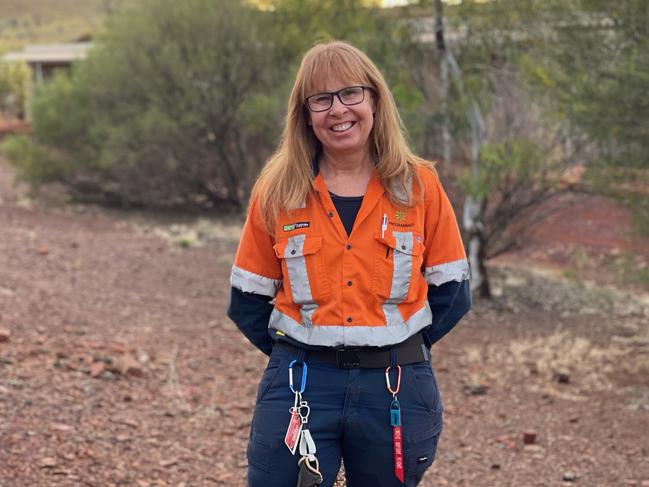Looking for work in Australia: New advice for job seekers
Australians are landing new jobs right now, but experts have some new advice for those looking to make a career switch.
SmartDaily
Don't miss out on the headlines from SmartDaily. Followed categories will be added to My News.
Almost half of workers are looking for a new job – and now may be the time to make a move as hiring activity soars.
A survey of more than 750 Aussies by staffing firm PERSOLKELLY reveals 46 per cent considered a role change in the 12 months to March, and about 15 per cent were aiming for a completely new industry.
Australian Bureau of Statistics data shows only about 8 per cent of workers changed employer in the year prior to the pandemic, so if everyone on the hunt follows through, there will be a significant spike in movement.
WHY PEOPLE WANT A CHANGE
PERSOLKELLY Programmed Skilled Workforce & Training Services chief executive Nic Fairbank says job changing has ramped up among permanently-employed workers in roles requiring specialist skills, such as professional services, but declined among casual and temporary employees who seek more stability.
The PERSOLKELLY research finds most workers with itchy feet are on the hunt for better financial security (26 per cent), work conditions (23 per cent) workplace safety (23 per cent) or development and growth opportunities (18 per cent).
One in 14 (7 per cent) attribute their search to COVID-19 directly.

Fairbank says many people are open to change but most hope to stay in their industry and simply upskill to progress their careers.
“Those changing industries are doing so to increase their earning potential or create a longer term career path that they don’t see as achievable in their current industry,” he says.
“This may also relate to structural change in their current industry.”
Gitlab’s latest Remote Work Report finds many Australians have also become accustomed to working from home and are willing to shake up their career to ensure it continues.
A third (34 per cent) of remote workers say they will look for a new remote role if their employer forces them back to an office.
HOW THE JOB MARKET IS PERFORMING
Increasing interest in new work opportunities comes as job boards report record-breaking demand for staff.
In April, National Skills Commission data revealed 243,500 jobs up for grabs, and employment marketplace SEEK recorded the highest number of job ads posted in a month in its 23-year history.
The massive job volume has led to competition for roles plummeting, with applications per ad at the lowest level since 2012.
On April 30, the number of roles listed on job site Indeed was 45 per cent higher than on February 1 last year, before the pandemic.
So what should you do if you are contemplating a new job in the current market?
1 - CHECK THE COMPANY’S COVID RESPONSE
Indeed head of career insights Jay Munro says jobseeker looking to change employer can read staff reviews on Indeed or Glassdoor that were posted during the pandemic.
“It will give an insight into how the company responded during that time,” he says.
“That can be eye opening in case we are faced with a similar situation in the future.”

2 – ASK ABOUT SALARY
Munro says some companies are offering lower pay packets than before the pandemic so jobseekers cannot assume they know what a role will pay.
“Clarify salary in beginning so you are not wasting each other’s time,” he says.
“Set a benchmark for what you should expect for the job you do and the industry you work in.”
3 – EMPHASISE SOFT SKILLS
If a job advertisement lists soft – or human – skills, they must be addressed in the application.
“Pay attention rather than just skimming through the ad,” Munro says.
“Structure your response using the tried and tested response methods, like STAR – situation, task, action, result.”
4 – STEP OUT OF YOUR COMFORT ZONE
After 31 years as a first-class Qantas cabin crew member, Sydney’s Caroline Jervis reached out to Programmed and is now working as a dump truck operator in the Pilbara for BHP.
“I went from stilettos to steel caps, and from fuchsia to high-vis,” she says.
“My lifestyle has completely changed and I’m earning really good money driving a truck.
“To change careers this late in my life is fantastic.”
Jervis recommends aspiring career changers get their resume up to date, give a recruitment agency a call, and be open to new ideas.
“Together, Programmed and PERSOLKELLY have thousands of available jobs,” she says.
“Don’t be afraid to step out of your comfort zone and try new things.”

5 – CLEAN UP YOUR SOCIAL MEDIA
Greg Savage, recruitment industry expert and advisor to recruitment software solution JobAdder, says now is the time to ensure LinkedIn profiles are complete, showcase niche expertise, have a strong headline and include employee value propositions.
“Post content to show engagement (and) connect with the right people,” he says.
“Be aware people are looking at you online and assessing you based purely on what comes to their attention – similar to what we do when we’re weighing up whether to go on a date with someone new.”

SIGNS YOU NEED A CAREER CHANGE
52 per cent of workers considering a new career/industry felt burnt out at work between January and March, compared to 34 per cent of those who planned to stay where they are.
49 per cent took annual leave, compared to 37 per cent
45 per cent felt bored at work, compared to 27 per cent
33 per cent felt overwhelmed at work, compared to 22 per cent
19 per cent faked a sick day, compared to 12 per cent
Source: ELMO Employee Sentiment Report
Originally published as Looking for work in Australia: New advice for job seekers




